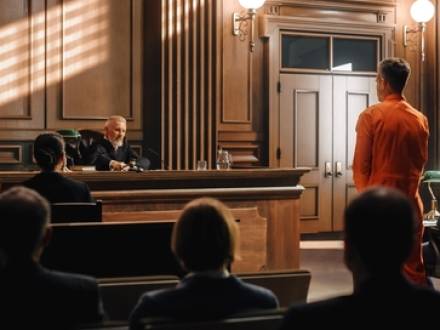When Can Someone in Wisconsin Get Out of Jail or Prison on Parole?
 In Wisconsin, parole allows someone to be released from prison after serving part of their sentence, but it is not available to everyone. If someone is convicted of a crime and wondering when they can apply for parole, the answer depends on the date of their offense and the crime involved. For example, Wisconsin abolished parole for crimes committed after December 31, 1999. People sentenced after that date are not eligible for parole and must serve a set percentage of their sentence under "truth-in-sentencing" laws. However, those convicted before 2000 may still be eligible. If you are unsure about your parole eligibility, contact a Wisconsin criminal defense attorney for personalized guidance.
In Wisconsin, parole allows someone to be released from prison after serving part of their sentence, but it is not available to everyone. If someone is convicted of a crime and wondering when they can apply for parole, the answer depends on the date of their offense and the crime involved. For example, Wisconsin abolished parole for crimes committed after December 31, 1999. People sentenced after that date are not eligible for parole and must serve a set percentage of their sentence under "truth-in-sentencing" laws. However, those convicted before 2000 may still be eligible. If you are unsure about your parole eligibility, contact a Wisconsin criminal defense attorney for personalized guidance.
Are There Crimes in Wisconsin That Are Not Eligible for Parole?
Yes, certain crimes in Wisconsin make someone ineligible for parole. Under "truth-in-sentencing" laws, anyone convicted of crimes committed after December 31, 1999, must serve all of their sentence without the possibility of parole. Some people may be eligible for something known as "early release."
For crimes committed before December 31, 1999, people convicted of serious offenses — such as first-degree intentional homicide or sexual assault — are less likely to be granted parole, even if they are technically eligible. Just because parole is an option does not mean it will be granted, as the parole board carefully reviews each case. A knowledgeable attorney can help determine if parole is possible in your case.
Are There Crimes in Wisconsin That Are Not Eligible for Earned Release?
People convicted of violent crimes, such as first-degree intentional homicide, sexual assault, domestic violence, and certain repeat offenses, are generally excluded from early release programs. Additionally, those sentenced under the state’s "truth-in-sentencing" laws must serve their full sentence without the possibility of early release, except in rare cases such as compassionate release for severe medical conditions. This means that for the most serious offenses, early release is not an option, and people must serve the entire length of their court-ordered sentence
How Can Someone Increase Their Chances of Getting Early Release in Wisconsin?
In Wisconsin, people serving sentences for certain offenses may be eligible for early release through various programs, though eligibility is limited. Early release can be granted for reasons such as good behavior, participation in rehabilitation or educational programs, or compassionate release for medical reasons.
One option for early release is the Earned Release Program (ERP), which allows some people convicted of nonviolent crimes to complete a substance abuse treatment program and, upon successful completion, become eligible for early release.
Compassionate release may also be granted to those with serious medical conditions, allowing them to serve the remainder of their sentence under supervision outside of prison. Consulting a Wisconsin criminal defense attorney is crucial to understanding eligibility and navigating the early release process.
What Conditions Are Placed on Someone Granted Parole or Earned Release in Wisconsin?
If someone is granted earned release or parole in Wisconsin, they must follow specific conditions. These typically include regular check-ins with a parole officer, maintaining employment, and avoiding any further criminal activity. Additional requirements may be imposed based on the nature of the crime. For example, a person convicted of a drug-related offense may need to attend regular substance abuse counseling or submit to random drug testing.
Contact an Ozaukee County, WI Criminal Defense Attorney
Navigating Wisconsin’s parole laws is not easy. Whether you are exploring parole eligibility or preparing for an earned release hearing, it is important to have experienced legal support. A Walworth County criminal defense lawyer at Bucher Law Group, LLC can help you understand your options and work toward the best possible outcome. Call us today at 262-303-4916 to discuss your case in a free consultation.














 262-303-4916
262-303-4916 262-303-4079
262-303-4079






